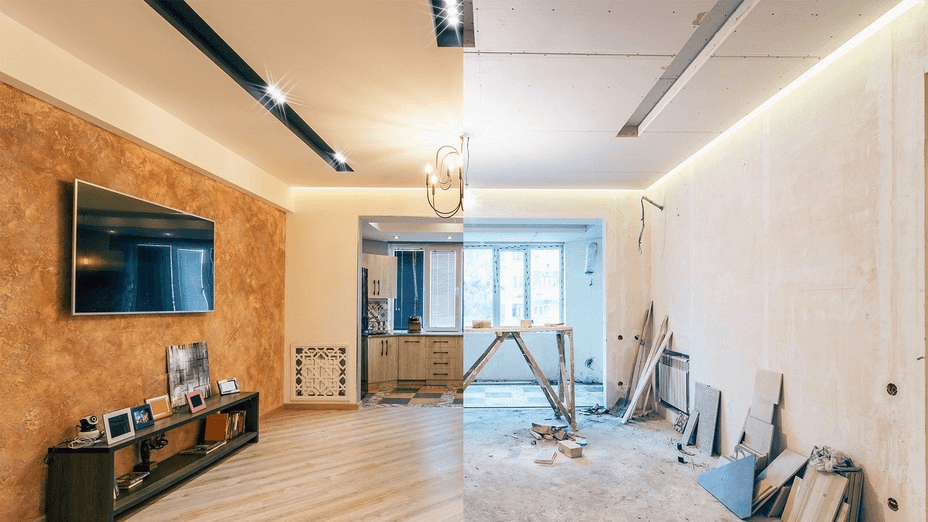

AI-Powered Real Estate Help
Need help with Dubai real estate? I'm here to assist you with property searches, market insights, investment advice, and more!
Online & Ready to Help
Powered by Skyden AI • Real Estate Intelligence

Dubai’s real estate market had a solid trend going for a pretty long time before the subtle shift started to take place, and the market that was once dominated by high-net-worth investors and players that invested in large institutions is being taken over by a newer generation. This new generation of property buyers is younger, savvy, and has more strategy.Let's talk about micro-investing.
These investors aren't the richest of the rich, and their budget isn't unlimited either; they're usually limited to somewhere between AED 500,000 and AED 1 million, and they're also fresh in the market with little experience. These new buyers aren't looking for glamorous villas and penthouses; their goals are a little different. They're not looking for the long but satisfying returns; they want smaller, more compact studios, one-bedroom units, and off-plan properties.

Usually younger, their age ranging between the mid-twenties to the early forties, micro-investors are young professionals and expats who are more literate when it comes to finances and tech-savvy too. They have their goals set; it's the next generation or the new generation of adults in the market. Most of them are buying real estate for the first time in their lives, and it's not for themselves but for profit.
They tap into their savings or use flexible payment plans, and their real play is the strategic mindset they bring to the table. These newbies may not be experienced, but they make up for it in knowledge; field work doesn't always matter when you've done your homework. They look at everything that affects profit, ROI potential, rental yields, the reputation of developers, and the rate of growth of the neighborhood. They know what to look at before they play hard and fast with the limited funds they have.
Now, having such a limited budget in one of the most urban areas in the world may seem like it's holding them back, but it gives them an advantage to be able to have access to a lot of hidden gems as well. They can get studios and 1-bedroom apartments in areas that are still growing, like JVC, Arjan, Dubai South, or Town Square. They can also buy off-plan properties from well-known developers that have good reputations and get a payment plan that allows them to be handed the property in 5-7 years. Another great option is short-term rental-ready apartments near areas like Expo City, Business Bay, or Dubai Marina. While it may still not seem convincing, these assets are the ideal type of property for generating consistent rental income or for those who want to resell quickly.

Many of these micro-investors don't want the long run, and they only think about the near future and the quick money they want to make. Time is money, and it continues to become more expensive as it goes by. They can't play the 20-year-old game that we learned from more traditional, veteran buyers; they want to flip it and sell. The plan usually aims to buy an off-plan, wait about a year or so, and then sell it at a rate that's marked up before the building is complete. This is a good idea for some quick returns if you get your hands on a property in a well-located up-and-coming neighborhood. The properties that were once cheap and more reasonably priced rise in value, and that's when these short-term trades bring in their money.
Another way to bring in the quick buck is by using furnished units and listing them on Airbnb or a platform for short stays to take advantage of the boom in the city's tourism and demand for a place to stay. If these units are in a good location, they can bring in quite the money and get a higher ROI during the holiday season.

As you can tell from the tight budget and the type of people that go after these types of investments, some of them don't even have that small range of money mentioned. This is why not all micro-investors trade alone. Another trend on the rise is co-investing. This is when two or more people group their funds and jointly own a property. This could be friends buying together, or there are even platforms for this type of dealing to give people fractional ownership at a much lower cost.
Although this concept is still pretty new in Dubai, co-ownership models are getting more attention from the market, they're more enticing and affordable, there's a lower capital barrier, and the risk isn't all you're to bear alone. This also gives more reach to investors and lets them go into more than one property instead of going all in one place.
There are so many reasons why this new trend in the real estate market is starting to take over; one that's the most obvious is affordability. There are so many entry prices that developers put up that are reasonable and low, the payment plans are breathable, and the needed capital is something many more people are able to reach. Another reason is the transparency it shows; there are now regulatory forms and more RERA protections that give those new buyers more confidence to take the next step. One of the biggest reasons behind any trend, including this one, is technology; there are now virtual tours, apps you can invest in, and many more things that have made the real estate market more accessible to more people.
Micro-investors are, in a way, like a really good blood flow for the real estate market; they help to boost demand in more areas that are affordable and more mid-tier. This new dynamic style of investment activity allows for the prices to stabilize more, there's more rental supply, and more healthy competition between the developers.
They might not be buying the biggest properties, but they are making an impact that is huge. With the different strategies and looking into the long term, this new wave of buyers is reshaping the future of real estate in Dubai.